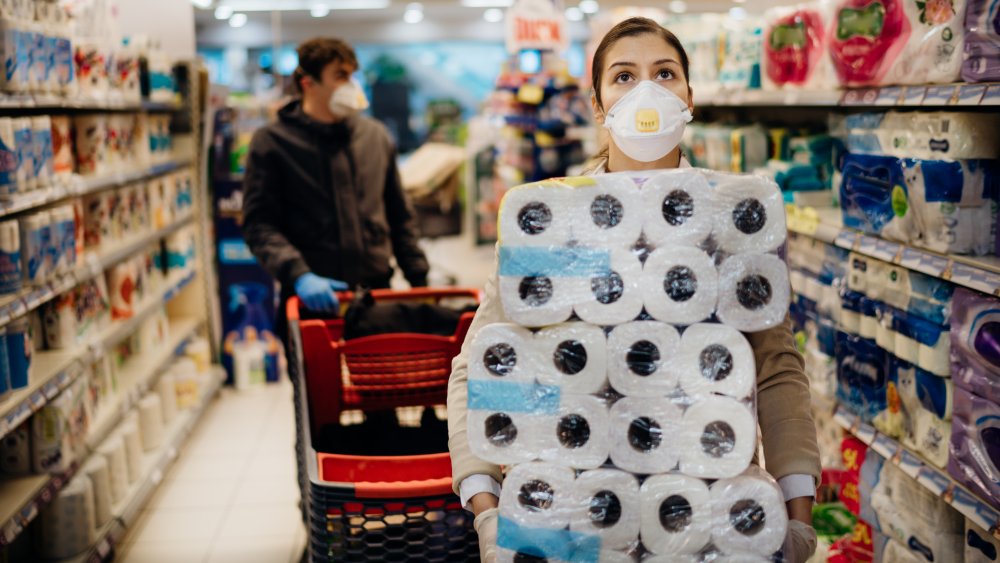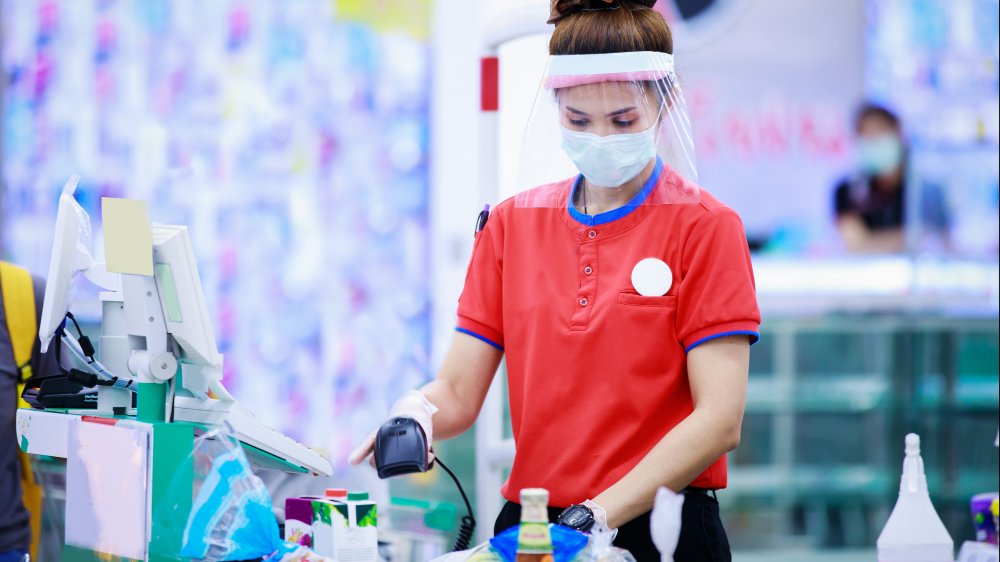How Some Grocery Stores Are Preparing For The Second Wave Of COVID-19
If you think back on what a mess grocery shopping was in March — racing your neighbor to get to the last few rolls of toilet paper and paying exorbitant prices for off-brand disinfectants — you might be worried about how your local supermarket is preparing for the second wave of COVID-19. Some supply shortages are out of retailers' control, but grocery stores are doing what they can to keep essential items on the shelves. According to Newsy via MSN, many grocery stores have been focusing on stocking shelves with supplies for months, instead of looking only weeks ahead as usual.
Southeastern Grocers, for instance, started buying holiday hams and Thanksgiving turkeys over the summer, months ahead of when they'd usually place the orders, so they wouldn't come up empty in November and December. "We started talking about Thanksgiving in June. That's earlier than we ever have," President Chris Testa of grocery wholesaler United Natural Foods Inc told the Wall Street Journal. UNFI is stocking up on cranberry sauce as well as cold-season essentials like cold medicine and herbal tea.
Some stockpiles, some shortages
When it comes to sanitizing products to keep your hands, your home, and your body coronavirus-free, it's a mixed bag. Darin Peirce, vice president of Associated Food Stores, a cooperative of more than 400 grocery retailers, told WSJ that they're creating "pandemic pallets" of cleaning and sanitizing products, to anticipate the demand. He said, "We will never again operate our business as unprepared for something like this."
The Giant and Food Lion grocery chains are also stocking 10 percent to 15 percent more inventory of fast-selling goods, but some suppliers are still struggling. The inventory of Hormel Foods Corp., which sells among other products Skippy and Spam, is down 24 percent, and WSJ reports that General Mills is behind on producing Progresso soup, Betty Crocker cake mixes, and Pillsbury refrigerated dough.
According to CNN, Amazon and Costco are still facing paper towel shortages, thanks to consumers who panic buy and hoard products. Clorox is also having trouble meeting the demand for wipes and other items. Not much your grocer can do about that.

